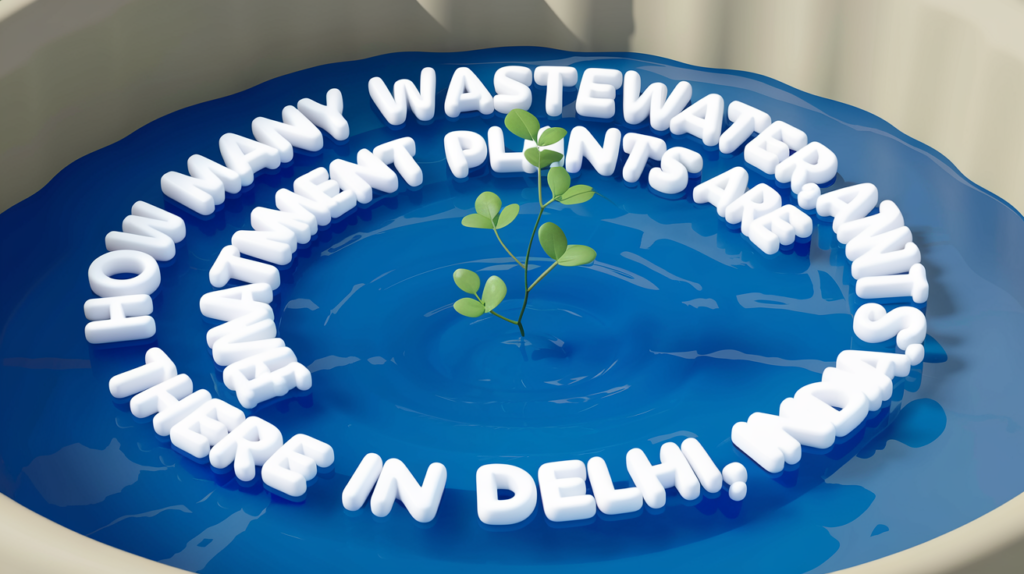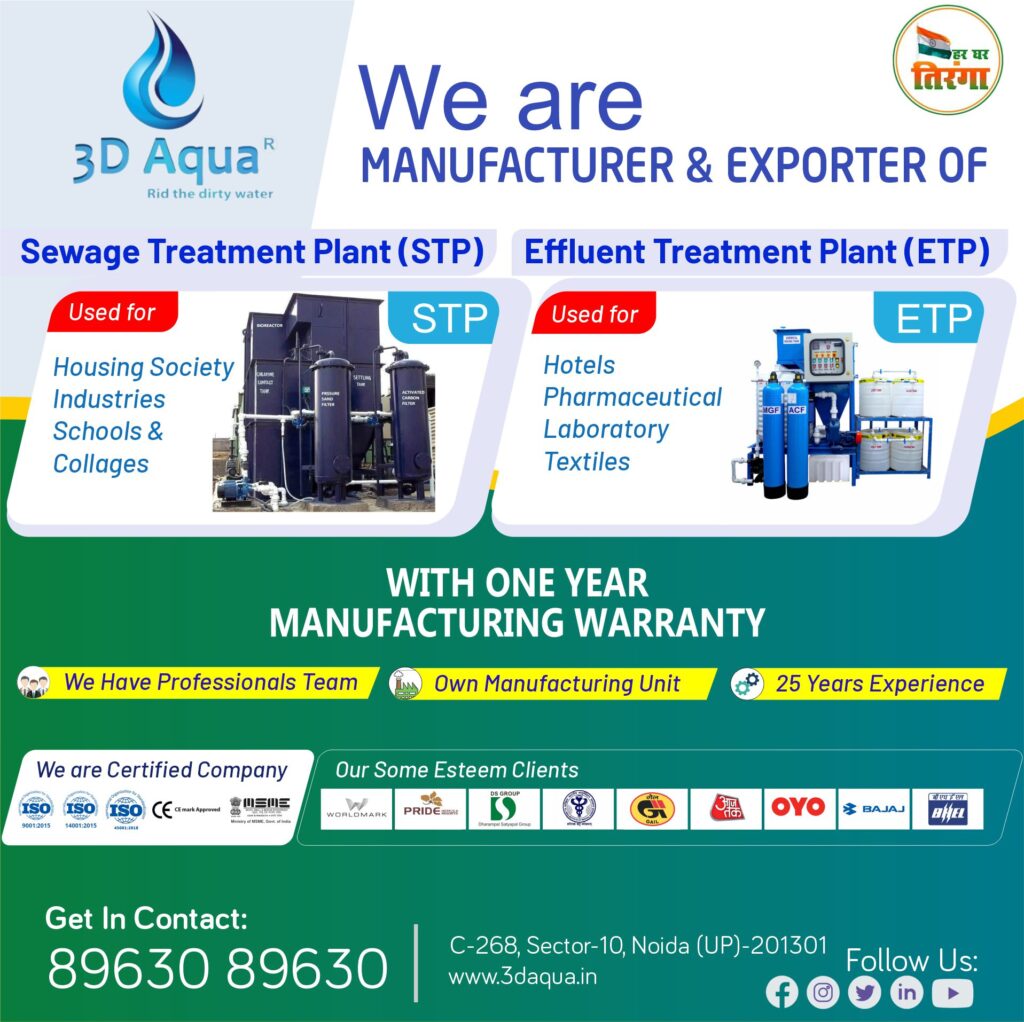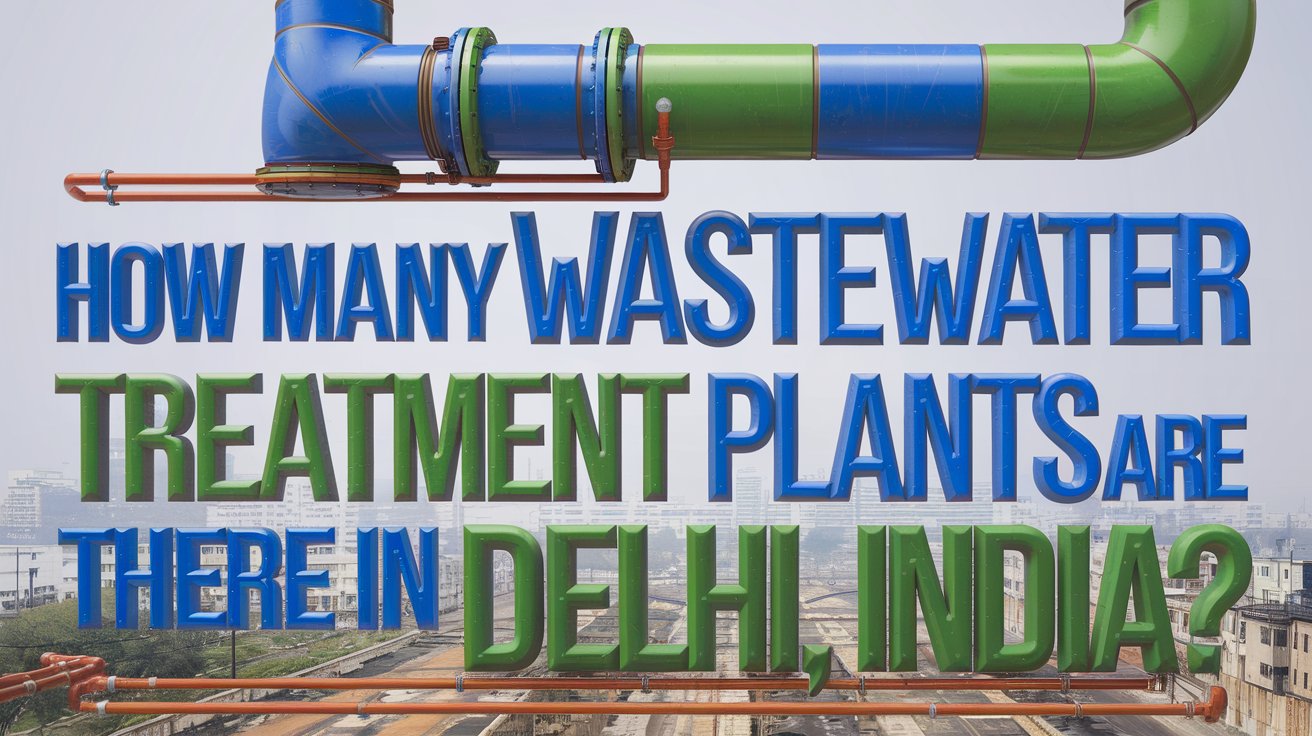Delhi, the bustling capital of India, is a vibrant city characterized by its rapid urban growth and diverse population. With such a high density of people, managing essential services, including wastewater treatment, becomes crucial. Wastewater management is vital for maintaining public health and environmental sustainability. In this article, we will delve into the number of wastewater treatment plants (WWTPs) in Delhi, their significance, and the challenges they face in catering to the city’s needs.
Overview of Wastewater Management in Delhi

Delhi generates a substantial amount of wastewater due to its large population and industrial activities. Efficient wastewater management is necessary to prevent pollution of water bodies, protect public health, and ensure compliance with environmental regulations.
Wastewater treatment involves several stages, including primary, secondary, and tertiary treatments, designed to remove contaminants and pollutants. The treated water is then safely discharged into the environment or reused for various purposes.
Historical Context of Wastewater Treatment in Delhi
Historically, Delhi’s approach to wastewater management was rudimentary, with many areas lacking adequate facilities. As the city grew, it became evident that more sophisticated treatment infrastructure was needed to handle the increasing volume of wastewater.
Over the years, the Delhi Jal Board (DJB), responsible for water supply and wastewater management in Delhi, has undertaken numerous projects to expand and enhance the city’s wastewater treatment capabilities. This includes the construction of new plants and upgrading existing facilities.
Current Status of Wastewater Treatment Plants in Delhi
As of 2024, Delhi boasts a network of 42 wastewater treatment plants. These facilities play a crucial role in managing the city’s wastewater, treating an average of 3,200 million liters per day (MLD). The treatment plants are distributed across various parts of the city, with each plant serving specific regions.
Major Wastewater Treatment Plants in Delhi
- Rohini Wastewater Treatment Plant
- Capacity: 135 MLD
- Location: Rohini Sector 19
- Features: This plant uses advanced technology for treating domestic and industrial wastewater.
- Sarai Kale Khan Wastewater Treatment Plant
- Capacity: 94 MLD
- Location: Sarai Kale Khan
- Features: Known for its state-of-the-art treatment processes, including tertiary treatment.
- Okhla Wastewater Treatment Plant
- Capacity: 130 MLD
- Location: Okhla Phase 3
- Features: Utilizes a combination of conventional and advanced treatment methods.
- Kalkaji Wastewater Treatment Plant
- Capacity: 60 MLD
- Location: Kalkaji
- Features: Equipped with modern facilities for efficient wastewater treatment.
- Narela Wastewater Treatment Plant
- Capacity: 10 MLD
- Location: Narela
- Features: Serves the northern parts of Delhi, focusing on both domestic and industrial effluents.
- Vasant Kunj Wastewater Treatment Plant
- Capacity: 60 MLD
- Location: Vasant Kunj
- Features: Advanced treatment technologies for effective wastewater processing.
Significance of Wastewater Treatment Plants
Public Health
The primary function of wastewater treatment plants is to safeguard public health. Untreated or inadequately treated wastewater can lead to the spread of diseases, contamination of drinking water sources, and other health hazards. By effectively treating wastewater, these plants help prevent outbreaks of waterborne diseases and ensure a cleaner environment.
Environmental Protection
Wastewater treatment is crucial for protecting Delhi’s natural water bodies, including the Yamuna River. Proper treatment processes remove harmful pollutants and reduce the impact on aquatic ecosystems. This contributes to maintaining the ecological balance and preserving biodiversity.
Resource Recovery
Modern wastewater treatment plants are not just about disposal but also about resource recovery. Many plants have systems for recovering biogas, treated water, and even nutrients that can be reused in agriculture or other industries. This aligns with sustainable practices and supports the circular economy.
Challenges Faced by Wastewater Treatment Plants
Despite their critical role, wastewater treatment plants in Delhi face several challenges:
Rapid Urbanization
Delhi’s rapid urbanization and population growth pose significant challenges for wastewater management. The existing infrastructure often struggles to keep up with the increasing volume of wastewater, leading to inefficiencies and potential environmental risks.
Infrastructure Maintenance
Maintaining and upgrading aging infrastructure is a constant challenge. Many plants require significant investments to modernize their systems, improve efficiency, and comply with updated environmental standards.
Pollution Control
The quality of wastewater entering treatment plants can vary significantly. Industrial effluents, often containing hazardous substances, can complicate the treatment process. Ensuring that all wastewater sources are properly regulated and treated is an ongoing challenge.
Climate Change
Climate change impacts, such as increased rainfall and flooding, can affect the operation of wastewater treatment plants. Extreme weather events may overwhelm treatment facilities, leading to potential overflows and untreated discharges.
Recent Developments and Future Plans
Expansion Projects
To address the growing needs of the city, Delhi has embarked on several expansion projects. New treatment plants are being constructed, and existing facilities are being upgraded to increase their capacity and efficiency.
Technological Advancements
The integration of advanced technologies, such as membrane bioreactors (MBRs) and advanced oxidation processes (AOPs), is enhancing the efficiency of wastewater treatment. These technologies offer better performance and reduced environmental impact.
Public Awareness and Participation
Efforts are being made to increase public awareness about wastewater management. Educating residents about the importance of proper waste disposal and water conservation can contribute to reducing the volume of wastewater and improving treatment outcomes.
Conclusion
Delhi’s wastewater treatment infrastructure plays a vital role in managing the city’s growing wastewater needs. With 42 wastewater treatment plants in operation, the city is equipped to handle a significant volume of wastewater, safeguarding public health and protecting the environment.
However, challenges remain, and continued efforts are required to upgrade infrastructure, implement advanced technologies, and address the impacts of rapid urbanization and climate change. As Delhi continues to grow and evolve, the importance of efficient and effective wastewater management cannot be overstated.
By investing in infrastructure and technology, and by fostering public awareness and participation, Delhi can ensure a sustainable future for its wastewater management system, benefiting both its residents and the environment.
This comprehensive overview of wastewater treatment plants in Delhi highlights their importance and the ongoing efforts to address challenges and improve infrastructure. For a city as dynamic as Delhi, maintaining and enhancing wastewater management systems is crucial for ensuring a healthy and sustainable urban environment.
Discover the Excellence of 3D Aqua Water Treatment Company: Your Partner for Affordable and Efficient Sewage Treatment Plants
Introduction
In an era where environmental sustainability and efficient resource management are paramount, choosing the right wastewater treatment solution is crucial. If you’re in the market for a sewage treatment plant (STP) that combines affordability with high performance, 3D Aqua Water Treatment Company stands out as a premier option. Known for its extensive experience and comprehensive range of water treatment solutions, 3D Aqua Water Treatment Company is well-positioned to meet diverse needs in the water treatment industry.
About 3D Aqua Water Treatment Company
Company Overview
3D Aqua Water Treatment Company is an ISO-certified leader in the water treatment industry, holding ISO 9001:2015, ISO 14001:2015, ISO 45001:2018, MSME, and CE certifications. With over 20 years of experience, the company has established itself as a trusted name in the manufacturing, exporting, trading, and servicing of a broad spectrum of water treatment products. Their offerings include:
- Industrial RO Plants
- Domestic and Industrial Water Softeners
- Sewage Treatment Plants (STPs)
- Effluent Treatment Plants (ETPs)
- Sand Filters
- Activated Carbon Filters
- Deionization (DM) Plants
- Salt Tablets
3D Aqua Water Treatment Company operates across 1050 cities in 9 countries, demonstrating their extensive reach and capability in providing top-notch water treatment solutions globally.
Why Choose 3D Aqua Water Treatment Company?
1. Affordability Without Compromising Quality
When it comes to purchasing a sewage treatment plant, cost is often a significant consideration. 3D Aqua Water Treatment Company offers competitive pricing for their STPs, ensuring that you receive high-quality treatment solutions at a lower price. Their commitment to affordability does not come at the expense of quality, as they adhere to stringent international standards and quality controls.
2. World-Class Expertise and Experience
With over two decades of experience in the industry, 3D Aqua Water Treatment Company brings unparalleled expertise to the table. Their team of professionals is adept at designing, manufacturing, and maintaining water treatment systems that cater to various needs, from residential to industrial applications. This wealth of experience ensures that you receive reliable and effective solutions for your wastewater treatment requirements.
3. Comprehensive Range of Products and Services
3D Aqua Water Treatment Company provides a comprehensive range of water treatment products and services. Whether you need a sewage treatment plant, an effluent treatment system, or a specialized filter, they have the expertise and resources to deliver. Their product portfolio also includes spare parts and service provisions, ensuring that all your water treatment needs are covered under one roof.
4. Global Reach and Local Presence
Operating in 1050 cities across 9 countries, 3D Aqua Water Treatment Company combines global reach with a local presence. This expansive network allows them to offer tailored solutions that address specific regional and operational challenges. Their local offices and partners ensure that you receive prompt and efficient service, no matter where you are located.
Sewage Treatment Plants (STPs) from 3D Aqua Water Treatment Company
Key Features and Benefits
- Advanced Technology: 3D Aqua’s STPs are equipped with cutting-edge technology to ensure efficient and effective treatment of sewage. Their systems are designed to handle varying loads and types of wastewater, providing consistent performance.
- Customizable Solutions: Understanding that each project is unique, 3D Aqua offers customizable sewage treatment solutions. Whether you need a small-scale system for a residential complex or a large-scale plant for an industrial facility, they can design a system that meets your specific requirements.
- Compliance with Standards: Their STPs are designed to comply with international environmental standards and regulations. This ensures that the treated water meets the necessary quality benchmarks and that your operation remains compliant with legal requirements.
- Energy Efficiency: 3D Aqua focuses on energy-efficient designs that reduce operational costs. Their STPs are engineered to minimize energy consumption while maximizing treatment efficiency.
- Low Maintenance: Built with durability and ease of maintenance in mind, their STPs require minimal upkeep. This translates to lower long-term operational costs and less frequent downtime.
- Customer Support: With a commitment to customer satisfaction, 3D Aqua provides robust support services, including installation, training, and after-sales support. Their team is available to assist with any issues or questions that may arise.
The Importance of Choosing the Right Sewage Treatment Plant
Environmental Protection
A well-designed sewage treatment plant is essential for protecting the environment. Properly treated sewage prevents the contamination of water bodies and reduces the impact on ecosystems. Choosing a reliable provider like 3D Aqua ensures that you have a system that effectively handles waste and supports environmental sustainability.
Public Health
Effective sewage treatment is critical for safeguarding public health. Untreated or inadequately treated sewage can lead to the spread of waterborne diseases and other health risks. Investing in a high-quality STP from 3D Aqua helps ensure that wastewater is treated to safe standards, reducing health risks in your community.
Regulatory Compliance
Regulatory requirements for wastewater treatment are stringent and vary by region. A dependable STP provider ensures that your system complies with local and international regulations, helping you avoid potential legal issues and fines.
Call Us now – 89630 89630


